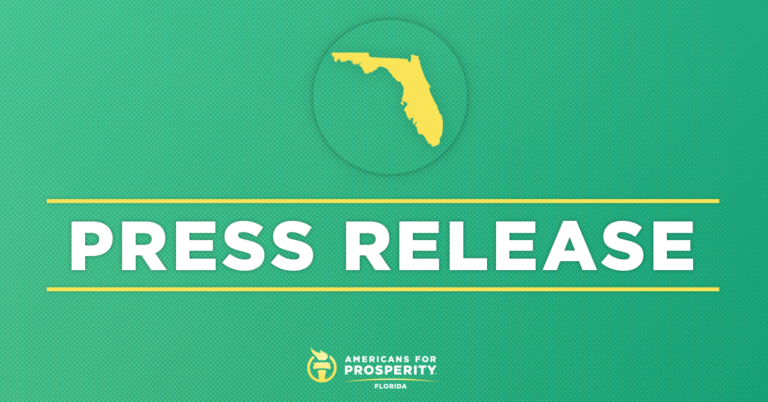
AFP-FL Launches Campaign to Protect Workers, Businesses, and Jobs
Grassroots group announces initiative to reject Amendment 2
Tallahassee, FL – Americans for Prosperity-Florida (AFP-FL) today announced a robust mail and digital ad campaign to oppose Amendment 2, a ballot initiative that would raise the state minimum wage to $15 per hour by 2026.
After 2026, the minimum wage would revert to being adjusted annually for inflation, meaning the already harmful $15 an hour could quickly skyrocket to even higher levels, continually keeping employment out of reach for many Floridians
View an example of the mail here
AFP-FL State Director Skylar Zander issued the following statement:
“When businesses and workers across the state are reeling from the economic impacts of COVID-19, raising the minimum wage and imposing a one-size fits all wage would be devastating as small businesses are trying to recover. Amendment 2 could force even more small businesses to close and eliminate at least 158,000 jobs.
“Instead of helping workers and businesses, Amendment 2 would cut the rungs off the economic ladder, making it harder for people to get to work. Rejecting this misguided ballot initiative will protect Florida workers, families, and small businesses. That’s why we’re going out and educating Floridians about the effects this would have on our state’s future, and why economic growth is best sustained by removing barriers to make it easier for people to find jobs and live their version of the American dream.”
Background:
According to a study by economists from Miami University and Trinity University, it is predicted that Amendment 2 will cost Florida at least 158,00 jobs.
A Competitive Enterprise Institute study found that wage hikes come with trade-offs, which include reduced non-wage compensation, fewer job openings, reduced hours, increased automation, higher insurance co-pays, less vacation and personal time, and reduced employee discounts.
Research shows raising minimum wages have negligible impacts on reducing poverty. Only 1/5th of those earning at or below the federal minimum wage today are coming from families in poverty, with 2/3 living in families earning 150 percent or more above the poverty line.
Minimum wage increases have shown to hurt low-wage workers and small businesses across the country. As Reason points out, raising the minimum wage hurt low-wage workers in Seattle: “In Seattle, workers’ hours at low-wage jobs went down while the minimum wage went up, leading to a decrease in overall earnings.”



